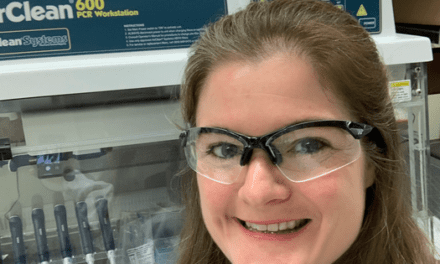The BreathID platform, a Helicobacter pylori test from Exalenz Bioscience Ltd, Modi’in, Israel, has shown positive clinical trial results for detecting clinically significant portal hypertension (CSPH) among nonalcoholic steatohepatitis (NASH) patients with compensated advanced chronic liver disease.1
CSPH has been shown to be the most important independent predictor of several liver-related complications in this population. Data from a total of 257 NASH patients who participated in two parallel studies comparing the use of the BreathID 13C-methacetin breath test (MBT) to invasive measurement of portal pressure demonstrate that MBT has high sensitivity and specificity in this patient population (88% and 85% respectively).
CSPH, a severe complication of chronic liver disease and cirrhosis characterized by elevated pressure in the vein carrying blood from the gastrointestinal tract to the liver, is closely associated with an increase in severe liver complications, morbidity, and mortality.
“Diagnosing CSPH in NASH patients is critical for effective intervention that can prevent further loss of liver function, improve patient outcomes, and reduce the cost of care,” says Scott Friedman, MD, dean for therapeutic discovery and chief of the division of liver diseases at the Icahn School of Medicine at Mount Sinai. “Current invasive and complex testing methods are not widely accessible, and thus, a noninvasive CSPH test is essential for meeting the needs of the large and growing population of NASH patients. Results from these studies suggest that BreathID could be the first effective, noninvasive test that would allow us to improve the management of late-stage NASH patients who are at risk for portal hypertension.”
The study populations comprised 257 NASH patients with a mean age of 59 years, mean body mass index (BMI) of 34.6, and a CSPH prevalence of 62.3%. A preliminary model to detect CSPH using MBT was developed with an area under the receiver operator curve of 0.88. Cutoffs were established to achieve 88% sensitivity and 85% specificity, with 10% indeterminate results.
“Exalenz is committed to leveraging our proven BreathID platform to innovate new breath-based tests for a broad range of liver and gastrointestinal disorders,” says Raffi Werner, CEO of Exalenz Bioscience. “We are very encouraged by the results of these two clinical trials demonstrating that MBT effectively detects CSPH in NASH patients, which could give clinicians a novel noninvasive tool to improve the management of this growing, complex patient population. We have a strategy in place to bring this innovative test to market with a potential product launch in 2020.”
MBT is a noninvasive, point-of-care, breath-based test in which a patient drinks a half glass of a tasteless solution that is metabolized exclusively in the liver. The patient’s exhaled breath is automatically collected and assayed with the BreathID system to measure the amount of a specific breakdown product of the solution, which reflects the rate of liver metabolism.
In addition to detecting CSPH in NASH, MBT is being evaluated for use in monitoring patients with confirmed diagnoses of acute or chronic liver disease.
For more information, visit Exalenz Bioscience.
REFERENCE
- BREATHID Octanoate Breath Test With or Without Methacetin Breath Test for Correlation With Biopsy in NASH. (2017). Retrieved from https://clinicaltrials.gov/ct2/show/NCT02314026?cond=BreathID+13C-methacetin+breath+test&rank=3 (Identification No. NCT02314026)






